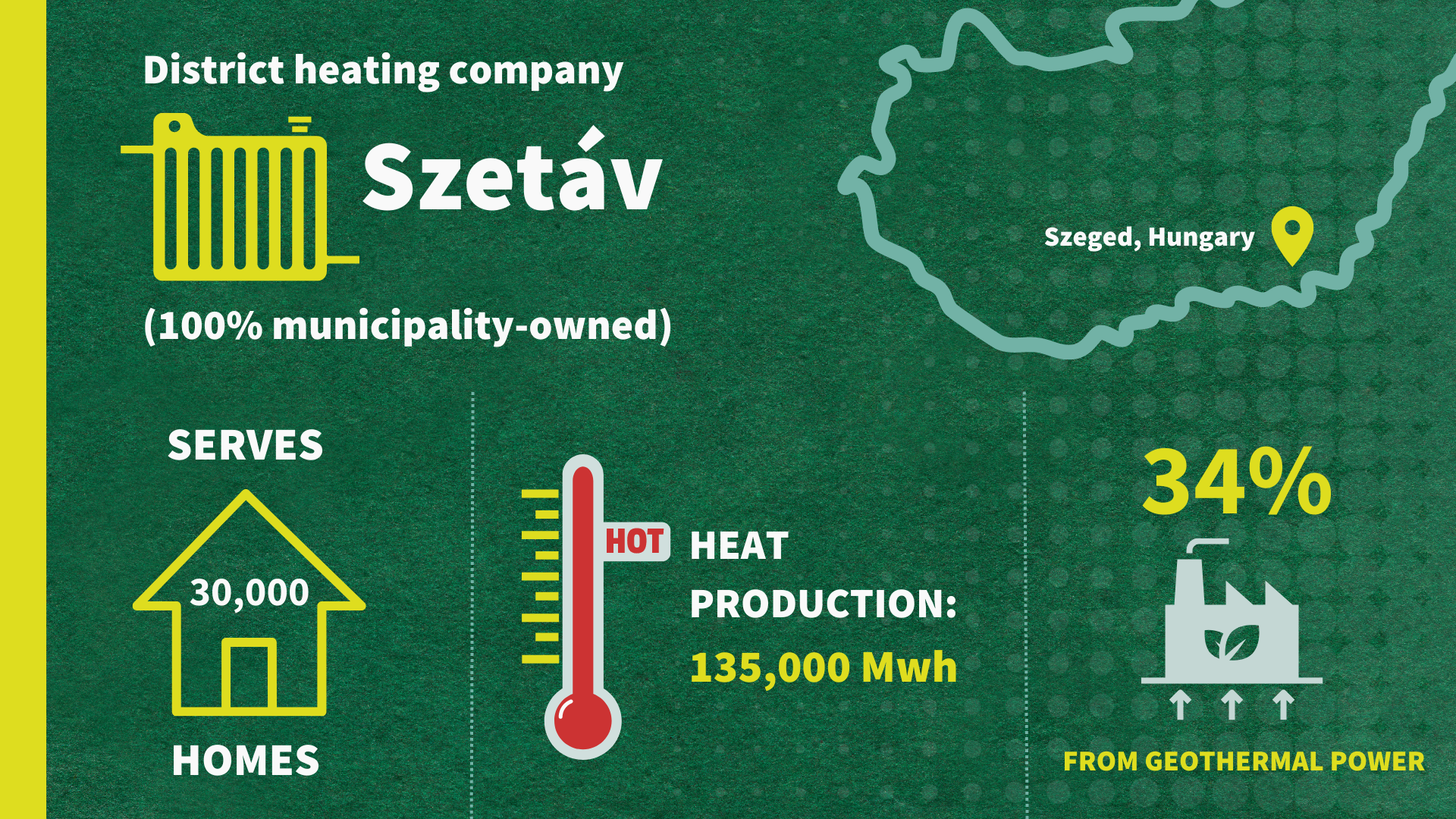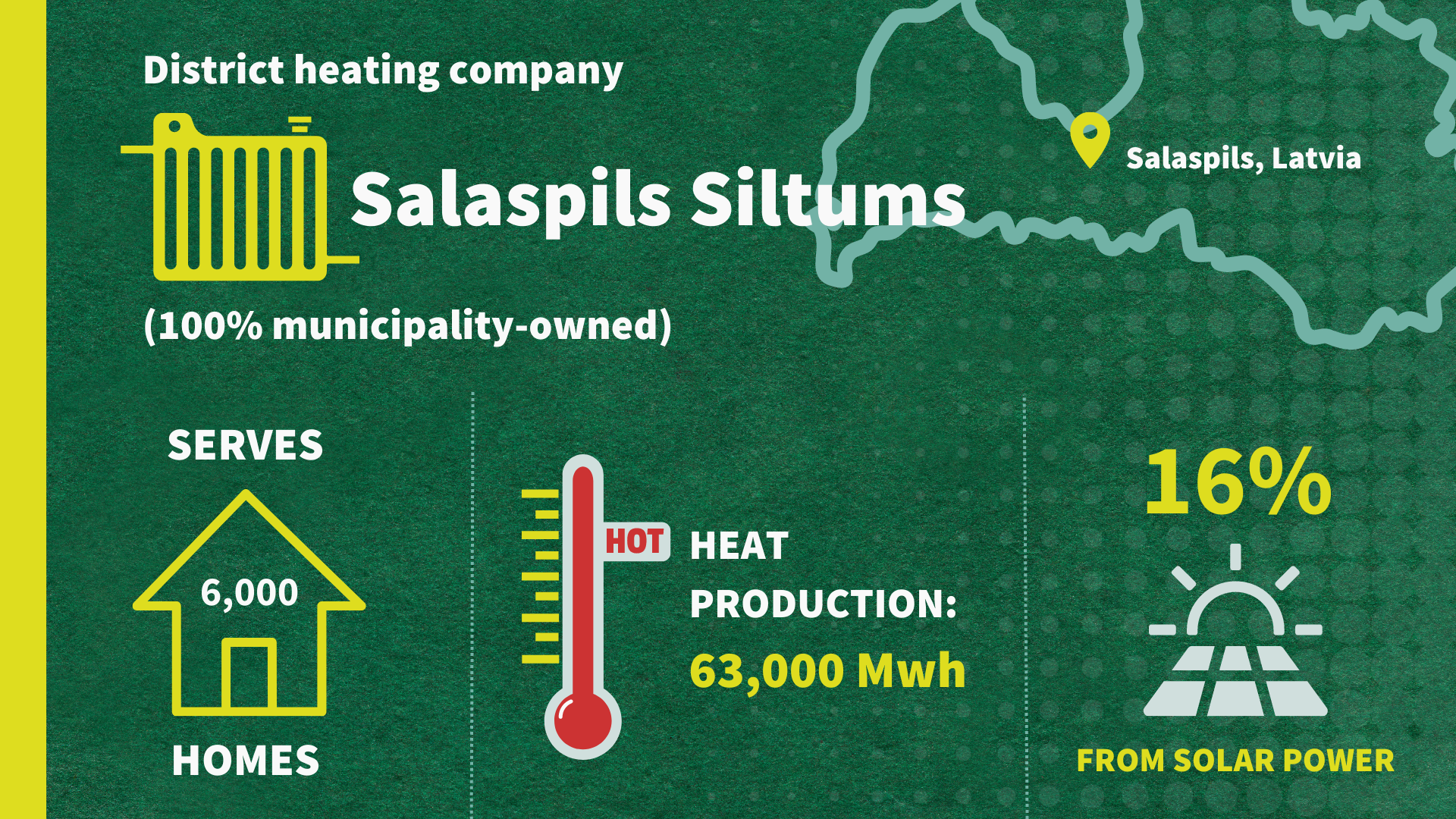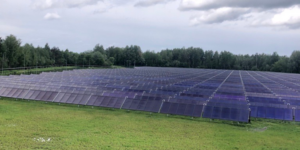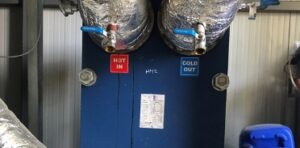Clean Heat
The cities at the forefront of Europe’s move to fossil-free district heating
The need to replace Europe’s dependence on fossil fuels with renewable energy sources has never been more urgent.
Heating and cooling account for half of the EU’s energy consumption. Almost three quarters of this energy comes from burning expensive, polluting fossil fuels.
Across Europe, communities large and small are working to convert their district heating systems to run on renewable energy.
Bankwatch’s new documentary, Clean Heat, showcases two front-runners in the renewable energy race – Szeged in Hungary and Salaspils in Latvia. These two towns used to be wholly dependent on fossil gas for heating. But their stories prove that district heating systems that run on solar thermal or geothermal energy, even if in part, are not the stuff of science fiction. They’re the future in the making.
Want to know more about how your city can shift to renewables-based district heating? Would you like to arrange a screening of this documentary in your town?
Get in touch: Morgan Henley, EU Heating Sector Decarbonisation Campaigner, morgan.henley@bankwatch.org. | ![]()
![]()
Two municipalities that decided to switch their district heating systems to renewables before it was cool
Szeged, Hungary’s third largest city, is located in the Pannonian Basin, an area with remarkable geothermal potential. Considering Hungary’s thermal waters have long been used for its famous spa industry, exploiting its geothermal resources for heating was a logical next step. Thanks to a group of students from the University of Szeged, who lobbied the city to begin exploring the possibilities of its geothermal waters, geothermal energy went into operation in Szeged in 2013. Today, it’s one of the largest geothermal retrofits of a district heating system in Europe.

Salaspils is a town located 18 kilometres southeast of Riga, Latvia’s capital. Although district heating is very common in Latvia, like most district heating systems in Central and Eastern Europe, Salapils’s was outdated, highly inefficient and reliant on fossil gas. In 2019, the municipality’s district heating company, Salaspils Siltums, incorporated solar thermal panels, an accumulation tank and a wood–chip boiler into its heat production in an effort to reduce its dependence on fossil gas. In addition, the company helps customers improve the energy efficiency of their homes by using more technologically advanced solutions to control heat demand.

Much still needs to be done, not only to entirely displace fossil gas as a heating fuel, but also to ensure that district heating systems are genuinely sustainable. Geothermal energy systems in particular need to incorporate technology that eliminates methane and hydrogen sulphide emissions and prevents the discharge of wastewater that could pollute nearby lakes and rivers.
Additionally, municipalities looking to convert their district heating systems to renewable energy sources must prioritise investment in energy efficiency. Proper insulation and retrofitting of residential, commercial and public buildings are essential for reducing both greenhouse gas emissions and energy bills. But above all, district heating systems should be planned by experts who understand the conditions and resources at the local level.
The district heating systems in both Szeged and Salaspils represent an important step forward, and their experience can be beneficial for many other towns that recognise the need to end our reliance on fossil fuels.
A participatory process
Public engagement has been key to developing the cutting-edge district heating systems in Salaspils and in Szeged. Both district heating companies invested considerable time and effort in working with customers and local residents to explain the advantages of switching fuel sources and adopting energy efficiency measures.
Szetáv gave presentations and tried to explain things so that residents would understand all the changes, which was a great reassurance,
says Szeged resident Eva Gábor in the documentary.
Renewables boost energy security
‘Dependence isn’t just about gas, it’s about politics,’ says Ina Berzina-Veita, CEO of Salaspils Siltums.
We’ve felt on several occasions that gas is being politicised.
Russia’s war in Ukraine and the Kremlin’s weaponisation of fossil energy exports have been a brutal reminder that shifting to renewables is also a matter of energy security. ‘I’m certainly glad that this geothermal switchover is going to happen, says Bora Makovicsné from Szeged, ‘because knowing the current political situation, it’s better not to get your gas from someone else but to have your own land provide the energy.’
Fossil gas prices have proven especially volatile, so communities that have been working to cut their dependence on gas are in a better position to weather these uncertain times. ‘It helps knowing that those of us who live in these houses won’t be as affected by this huge increase in gas prices,’ says Gábor.
EU financing can make a difference
Burning fossil fuels for heating is exacerbating the climate crisis at a time when its impacts, including severe cold snaps and harsh snowstorms, are already costing lives and livelihoods across the world, chiefly in the Global South. In many cities, heating fuelled by oil, coal or even fossil gas remains a major contributor to air pollution.
It’s our duty to reduce pollution as much as possible,
says Sándor Nagy, Szeged’s deputy mayor.
Converting district heating networks to run on renewable energy sources requires substantial investment. But generous EU financing is available for municipalities serious about ensuring their residents can keep their homes warm without having to pay through the nose. In Szeged and Salaspils, for example, EU money covered up to 40 per cent of the total costs.
Several EU funds are available to support the modernisation of district heating systems, including the Cohesion Fund, the LIFE and Horizon Europe programmes and the Modernisation Fund, which is only open to certain Member States.
The costs of a geothermal project are paid upfront […] but fossil fuel projects are paid for by generations to come,
says Tamás Medgyes, chief operations officer at Szetáv, Szeged’s district heating provider.
Now, the authorities in both Szeged and Salaspils are looking to expand their district heating networks to provide more households with sustainable and affordable heating.
It won’t be long before clean, efficient heating systems are the gold standard for municipalities throughout the EU.
The know-how is there and the funding is available. Residents deserve nothing less.




